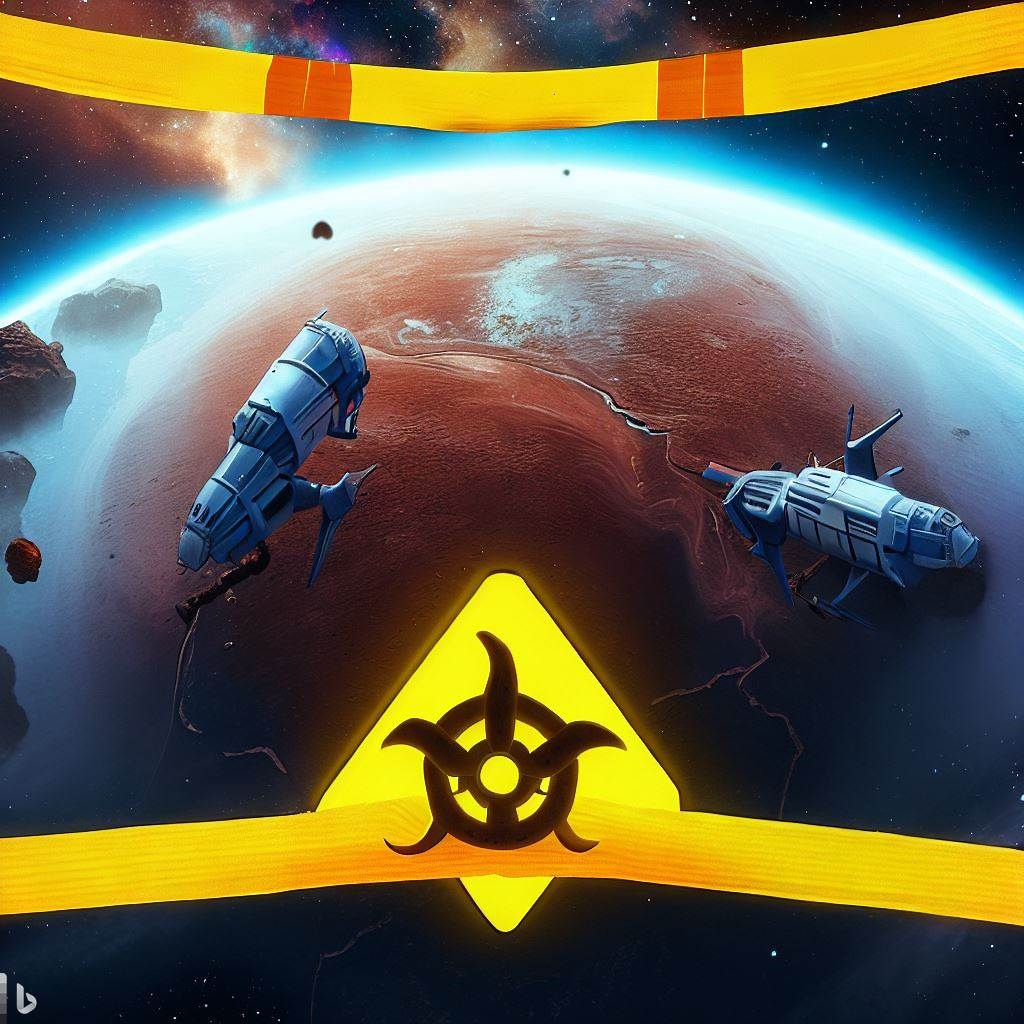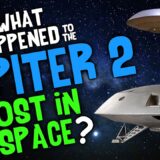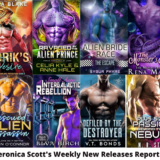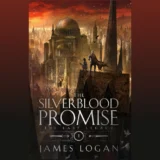
“What price would you pay to fix your greatest mistake?”
The question hung in the air between us, the weight of it at odds with the situation we found ourselves in. I looked at the human pensively, seeking to decipher the true meaning behind his words.
“I hardly think this qualifies” I replied. “It hasn’t been in your possession for over a thousand years. I highly doubt your people are that attached it to.”
The planet in question was nothing, just a hot rocky ball with a thin layer of poisonous atmosphere, clinging to it in much the same way that a bad smell clings obstinately to a dried-out turd. The only mistake we had ever made in relation to that planet was the mistake of accepting it in the first place. It had been part of reparations won from the Grux after we had defeated them in a short, but ultimately pointless, war fought several decades past.
Imagine our chagrin when we had learned that the Grux themselves had been fooled into accepting it by the Bloon over a century prior, who in turn had begrudgingly inherited it when their progenitors, the H’rac, had transcended long ago. Like an unwanted present this planet had been gifted and re-gifted, sold and resold, over the last thousand years until nobody remembered who had owned it in the first place, or indeed, why anybody had ever bothered with it at all.
As it turned out, the Humans remembered. It had been theirs. Lost to invaders in some ancient battle, only to be passed around the galaxy’s intelligent species like a poisoned chalice ever since.
“Perhaps, but… here we are” said the human, eyebrow arched wryly.
I smiled internally, despite my lingering uncertainty about the cryptic nature of this exchange. How fortunate that we Tromelians were now in a position to profitably offload this liability. The planet wasn’t really in our traditional territory, and the naval resources required to keep it secure were, in truth, a financial drain.
“Ok you can have it, if you give us a royalty free period of ten years for the power cell designs, and only if you guarantee that you won’t trade it to any non-Federation species. We don’t want any upstart empires setting up a military staging point so near to our borders.”
“Ten years? You know those designs will be obsolete in less than seven. By the time you start paying our commission there won’t be any profits left to pay it out of” accused the human.
“Perhaps, but here we are” I replied smugly. “It might be a shithole, but it’s still a planet, and those don’t come cheap.”
As a Tromelian I had a sixth sense for desperation, well, given that we can perceive magnetic fields it was more like a seventh sense. I could feel it, the near-frantic worry that wafted off him inflamed the predatory commercial instincts that my kind had been honing since we first crawled out of the primordial ooze.
“Fine, deal” he agreed. His demeanour was one of annoyance, but I could see relief relaxing the muscles at the corners of his eyes.
Interesting.
-=-=-=-
Planets are big. Of course, you know this already. If you’re like the majority of citizens in the Federation you probably live on one, or have at least paid one a passing visit. So it should come as no surprise to you that the effort required to terraform a planet is, at a minimum, tremendous. Sure, some of them are smaller than others, and the parameters used to define habitability are somewhat open to interpretation, but to most rational intelligent species the exercise just isn’t worth it. There are plenty of free habitable planets out there if you’re willing to take a hike to the unclaimed edges of the galaxy, or sail inward to where the radiative energies of the galactic core are strong enough to require special consideration.
Terraforming is a mug’s game, an economic impossibility. That’s why it’s rarely done, and then only as a proof of concept undertaken by some fledgling race, not yet wise enough to see the folly of it.
Imagine everyone’s surprise when the Humans, as old and as experienced as the most venerable of Federation species, set about terraforming their new acquisition. I know it shocked me greatly, for this was no proof of concept, no mere test of feasibility. The Humans terrafomed that planet like they were waging a war on it, with a level of gusto never seen before.
Their first salvo started with a fleet of massive ships. Easily tens of thousands. They scythed through the thin poison atmosphere and fell upon the planet like steel rain, braking to settle gently astride the remains of whatever unfortunate civilisations had dwelt there long ago. Shear-fields blossomed from beneath each ship, carefully excising the ruins over which they hovered, carving whole abandoned cities out of the ground before anti-grav and inertial dampeners gently raised them up into gigantic cargo holds. The ships then rose into orbit, their targets secured, before flicking away into the folds of spacetime, to where nobody knew.
This first confounding task completed, and the planet scrubbed clean of the grime of its history, the Humans began phase two.
A new fleet appeared, its ships smaller but no less intriguing. Strange booms sprouted from their bows, and massive engines from their sterns. With astounding coordination they plunged into the system’s asteroid belt and working together they corralled countless chunks of ice, pushing against them with their booms while their engines strained like great beasts of burden. One by one they shepherded their icy flock away from the belt, and slotted each piece into position in a sparkling river that began to flow across the system.
On one diplomatic visit I watched the dazzling spectacle from a Federation observation station. The procession of glittering shards that wound their way through space towards the beleaguered planet rivalled the beauty of the galactic disk.
Beside me stood my current diplomatic counterpart, a greyed female of many years. The texture of her weathered skin was nearly as rough as my own carapace, yet her eyes were young. In them I saw the same joy I had seen in those of her predecessor, the man who had bartered for this world years ago.
“It’s beautiful, I’ll grant you that” I conceded. “But all this expense, surely the ends don’t justify the means.”
Her eyes never left the spectacular scene in front of us.
“That which was taken must be returned. The debts of the past made good” she intoned, seeming like a taciturn oracle, out of place in time. It was all she deigned to say.
Months later when the first chunk of ice reached the planet it was shunted into a shallow descent, to hurtle down into the warm embrace of the thin atmosphere, friction melting the bulk of it before it reached the ground. A steady stream of its brethren followed, each pirouetting in a vaporous dance, until the oceans filled and the thin atmosphere grew thicker.
Whilst this orbital ballet took place shipyards on the surface below birthed a clutch of great leviathans, huge floating processing plants that sucked in the poisonous air and water to exhale it cleaned, filtered of toxins and the lingering radiation of atomic battles long past. Their behemoth counterparts on land consumed the rocks and soil, sifting out contaminants and the last traces of the planet’s previous inhabitants.
Slowly, over decades, the air grew clear, poisonous no longer, and the land itself was cleansed. Cool breezes blew over a sterile landscape, pushing pure white clouds across an azure sky.
Eventually a hundred years had passed since that day I sat across the table. In geographic terms, no time at all. Yet they had accomplished so much. A new world, ripe for seeding, wrought by countless human hands, each contributing a piece of their soul to revive it. No life graced yet it but its budding spirit could be felt, if not seen, from orbit. A priceless jewel that shone hopeful in a dark universe.
Envious eyes looked on.
-=-=-=-
Logic dictated that with the planet’s purity returned the Humans would begin the process of re-establishing its ecology, but this was not the case. On the contrary, they went to great pains to avoid even the smallest of biological contaminants. The ground prepared, they meticulously removed all traces of their intervention, leaving the planet pristine.
Once while sitting in a far off space port, waiting for a flight, I once asked a Human engineer why they stayed their hand. Why not reap the fruits of their labour and colonise the planet post-haste?
“It is not for us” he said, glancing up at me briefly from the technical blueprints on his datapad. “Anyway, we don’t deserve it.”
No further explanation was forthcoming.
When the planet’s surface was complete to their satisfaction, Humans focused their attentions in orbit.
Tapping the asteroid belt once more they brought in more materials, this time metallic, to feed orbital smelters constructed in high orbit. Around each smelter a reflector unfolded, a blooming silver flower that funnelled the star’s rays down into its maw. Before long the heart of each furnace grew white hot, tearing apart the chemical bonds of incoming rocks, and issuing behind it a cornucopia of products which were conducted onwards for further processing and fabrication.
Slowly a ring structure began to grow around the planet, high above the equator. From a distance it looked impossibly narrow, yet its cross section was over a hundred square kilometres. Before its ends had even joined the beginnings of another ring appeared, perpendicular to the first, running between the north and south poles. The two rings never touched, with the outer polar ring sliding over the inner equatorial one. Where they met the space between them was so small that a human in a spacesuit could almost jump from one ring to the other.
Construction started on a third ring, and then a fourth, each offset slightly from the last.
All the intelligent species of the galaxy racked their brains to divine the purpose of these rings. They were not habitats, that was plain to see, for they had none of the accoutrements such structures normally display.
When I inspected the rings during one of my diplomatic visits I could perceive the shifting coils of strange magnetic fields surrounding them. It was then I knew the rings for what they were.
Machines.
But for what purpose?
Our inquiries to the Humans were skilfully deflected, our demands for explanation rebuffed. What sinister purpose had we enabled by returning possession of this world to them? We could only watch, and wait.
It was when the completion of the eighth ring was drawing near that a catalyst precipitated events. The Kintoc, a harsh species of some martial renown, who had like the rest of us watched the restoration of this world with envy, decided to lay their claim to it.
The claim itself was flimsy, a trade deal never ratified, a bargain retroactively unstruck. It was merely a pretext, a veneer of legitimacy over their unjust claim. They unashamedly demanded that the world be returned to them. It would have been laughable if it hadn’t been so tragic, for their demands had teeth. The galaxy’s biggest military fleet was at their disposal.
The human refusal was inevitable. They had invested so much of themselves into this planet that they had paired their lives to it. All else had been made secondary to their mysterious enterprise, and the cost had caused them to fall behind most other species as they diverted funds and resources away from their other worlds to support it.
The first attack was no surprise, and the Humans were ready for it. The Kintoc fleet that warped in-system was met by staunch resistance, and never managed to get near the planet. But truthfully it was not the main offensive, just a scouting force to test the waters and measure Human resolve.
As the Kintoc retreated the Human call to action echoed throughout their own worlds. More ships were sent from every corner of their empire to help hold the line in the next inevitable attack.
There were so many of them. Once again the other species of the Federation received a shock. No one had suspected that the Human fleet was so large, but soon the real horror became apparent.
The Humans had held nothing back. No ships remained to protect their other planets. All had been brought forward in defence of this nameless world. Hundreds of billions of civilians throughout human space had been left unguarded. When the Kintoc realised this they went into a frenzy, invading a dozen worlds at once, but the Humans would not move themselves to defend them.
The Federation cajoled them, admonished them and begged them, but the Human leadership would not relent. Stranger still, there were no calls for help from the invaded worlds, only a trickle of civilian ships that managed to escape, arriving in dribs and drabs to reinforce the fleet.
While this went on, work on the rings continued. The eighth ring, the outermost and largest, crept closer towards completion.
-=-=-=-
By this time I had grown very old, nearly two and a half centuries weighed upon me, but given my long history dealing with Humanity I was tasked by the Federation with mediating a settlement.
First I met with the Kintoc war-chief to appeal to their mercy. Unfortunately their newfound spoils had not dissuaded them from pressing their original claim. To them it was as much about avarice as it was about pride. Laughingly the war-chief boasted.
“The Humans want that world more than any other. Now tell me, why is that? The only reason it can be is that it’s worth more than all the rest combined. We will have what is our due. If I have to conquer every last human to press our rightful claim then I will do so gladly, come what may.”
Dismayed at my failure, I went with haste to the Human fleet to meet with their commander. Aboard their flagship I met him in a windowed room overlooking their vast construction. He wore no formal uniform, only a simple ship suit, patched and worn.
“This is folly” I said. “You cannot hope to win this war. The majority of your people now live as slaves. They’re forced to toil in the factories that made your weapons, only to turn them straight over into Kintoc hands. Your enemy grows stronger every day. Sue for peace, I beg you. This path only leads to your annihilation.”
The man sat across the table, one clenched fist resting upon it. He looked tired, his eyes dull, but I could see resolve settle across his face.
“If that is the price we must pay, then we will pay it.” he said.
He raised his fist and rapped it against the table, not in anger but in resignation. I feared the sound was the death knell of his people.
He stood and thanked me for my efforts then left me alone.
Distraught at my abject failure, I refused to leave the flagship unless the Humans saw sense. They didn’t care, and left me to wander around as I willed. They even furnished me with food and lodgings when I could no longer go without. I roamed the flagship as a ghost might, largely unseen and unheard, my entreaties falling on deaf ears.
Weeks passed until on that last fateful day I was invited to the bridge. The eighth ring was now complete, the final checks passed.
From the bridge I looked out upon the marvel Humanity had wrought, still none the wiser to its purpose, but what I saw astounded me. Eight concentric rings wrapped around a perfect planet, each shining golden in the light of the yellow sun. Every ring was made up of dozens of segments, and from each segment sprang a multitude of magnetic fields that danced and pulsated, merging into each other and warping where they came close to the other rings. My eyes, uniquely evolved to see these energies unaided, perceived them as a myriad of colours, according to their intensity.
What became obvious to me in that moment was that these were not eight machines, but one.
Was this some celestial art project? Was it a vessel? A weapon?
“It’s beautiful” I whispered to myself.
“It is, but it is just a means to an end” said the commander, walking up to join me by the window.
He turned to a uniformed woman, seated behind a console. She gave him a curt nod, which he returned solemnly.
His chest expanded as he drew breath, ready to address those gathered on the bridge, but before the words could escape his lips the silence was shattered by screeching alarms.
“Sir! The Kintoc fleet has arrived in-system!” shouted a young man peering intently at a screen.
The commander swore, so quietly that I was sure that I was only one who heard it. He pulled a small communicator out of his pocket and brought it to his mouth.
“Attention all ships. You all know what you have to do. Keep them off until it’s done. I thank you all for your sacrifice. Remember, this is the price we must pay. Today we fix our greatest mistake, no matter the cost.”
He then switched to a different channel and spoke again.
“Team Aion. This is it, begin immediately” was all he said. He turned to the window, and my gaze followed.
It started slowly. A soft blue light began to seep out between ring segments, building in intensity as it flowed along their edges, until bright bands of it separated each segment from its neighbour. At the same time tiny pinpricks of fusion flame erupted from strategic points on each ring. Under this rapidly building thrust the rings slowly began to move, spinning end over end, passing above and below each other with such exacting precision I could scarcely believe it.
This process took hours, as gradually the inertia of the colossal rings was overcome and their speed increased.
During that time the human commander focused on the battle, issuing orders and coordinating fleet deployments. Periodically an officer would call out casualty numbers and the names of ships lost, and a sorrowful silence would settle across the bridge.
“*Zeus* and *Jehovah* destroyed.”
“*Osiris* and *Vishnu* destroyed. *Enki* critically damaged.”
“*Odin* and *Apollo* destroyed”.
I recognised the names of their gods, many whose worshippers had long abandoned them, neglected for millennia. Now they had been called out of retirement to protect the planet before us, prayed to one final time.
As each ship fell the Kintoc drew closer. It was a race against time, but what was at the finish line? I still had no idea. I knew that I would die if I stayed, but I could not tear myself away. I had to know what so many humans had laid down their lives for. I could not bear to live on without unravelling the great mystery before me.
Throughout the battle I never took my eyes off the rings. The faster they went, the more intense the magnetic fields became. I began to see hints of colours I had never seen before, stretching into streaks as the rings reached blistering speeds. I stood transfixed by the hypnotic patterns, a screaming pressure building in my mind until I couldn’t take it any longer.
I lost my balance and stumbled, but was caught by human hands before I fell. I tore my gaze away from the rings to see the human commander standing next to me, holding me upright. My overloaded mind could not express coherent thought aloud. My mouth gaped uselessly.
“It’s nearly time, although I think you know that. Can you see it?” he asked.
The pressure in my head, although diminished, prevented me from answering.
“It can’t be stopped now. Even if the Kintoc hit it with a nuke it wouldn’t make a difference. Our atonement is assured.”
He was smiling. The joy on his face had washed away the fatigue of days without sleep.
“The reason you’re feeling overwhelmed is due to the unique ability of your species, but you’re not seeing magnetic fields in space, you’re seeing them in time.”
“What does that mean?” I gasped.
“We’re sending it back” he said. “Over four billion years back. Back to the very beginning.”
“Back in time?! That’s not possible!” I cried.
“It wasn’t possible, until we found a way.”
“But why sacrifice so much just to send this planet back? Your species will never recover from this.”
“That’s where you’re wrong. This is our redemption. We ruined it the first time. Millions of species sent extinct, trillions of living beings sacrificed to our greed and our hate. That was the greatest mistake my people ever made, the greatest sin of mankind. Now life will get to try again, our ancestors will get a second chance. Hopefully we’ll do better next time.”
“But the planet is sterile. There’s no life on it.”
“Because nothing living could survive the trip. But we’ve laced it with the building blocks of life, and this…”
He gestured to the planet and its rings, now spinning so fast that they were merely a blur. The sight was blinding to me.
“… will be the spark.”
There was a flash, so intense that I couldn’t see anything for several moments. If the viewing window hadn’t increased its opacity at the last second I would have been left permanently blind.
The planet was gone, completely without a trace. Then I noticed something else just as astounding. The rings were stationary, perfectly aligned in a flat plane, nested inside each other. The event, whatever it had been, had stopped them dead. I knew of no force in the universe that could have accomplished that feat so cleanly.
“What… what was that?” I stuttered, unable to truly comprehend what I had seen.
Cheers flooded the bridge. The commander’s grin was still there, bigger than ever. He clapped me on the shoulder.
“That was Earth.”
END









